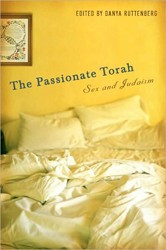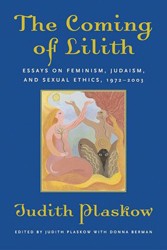Exegesis or eisegesis, do we draw meaning from the text or do we add meaning based on our own experiences, prejudices, and knowledge? This question is one we must consider when reading Dr. Lefkovitz’s book on gender roles in the Hebrew Bible. The Bible does not shy away from sexuality in either its stories or mitzvot and certainly reflects a point of view of a culture and a time.
Lefkovitz brings to the text a feminist, gender- based, psychoanalytical analysis which imposes upon the Biblical stories new meanings of sexuality through the lens of modern life. Her work represents a thoughtful and full exploration of several familiar stories beginning with Eve in the Garden and includes such well-known characters as Miriam and Joseph, explored in a new light of sexuality and gender identity. The story of seduction in the Garden has been well commented on, but Lefkovitz adds new layers of sexual meaning to the serpent as a phallic symbol. In a post-Freudian world it is difficult to interpret the serpent image otherwise, but are we imposing our interpretation or drawing out an interpretation? Are there undertones of homosexuality in the Joseph story, or does the beautiful Joseph escape Potiphar’s wife because he realizes the consequences of acting on impulse?
Interesting questions to ponder or refute in this challenging read of evolving sexual identity in Jewish texts.



